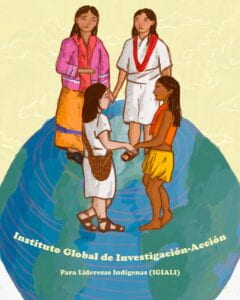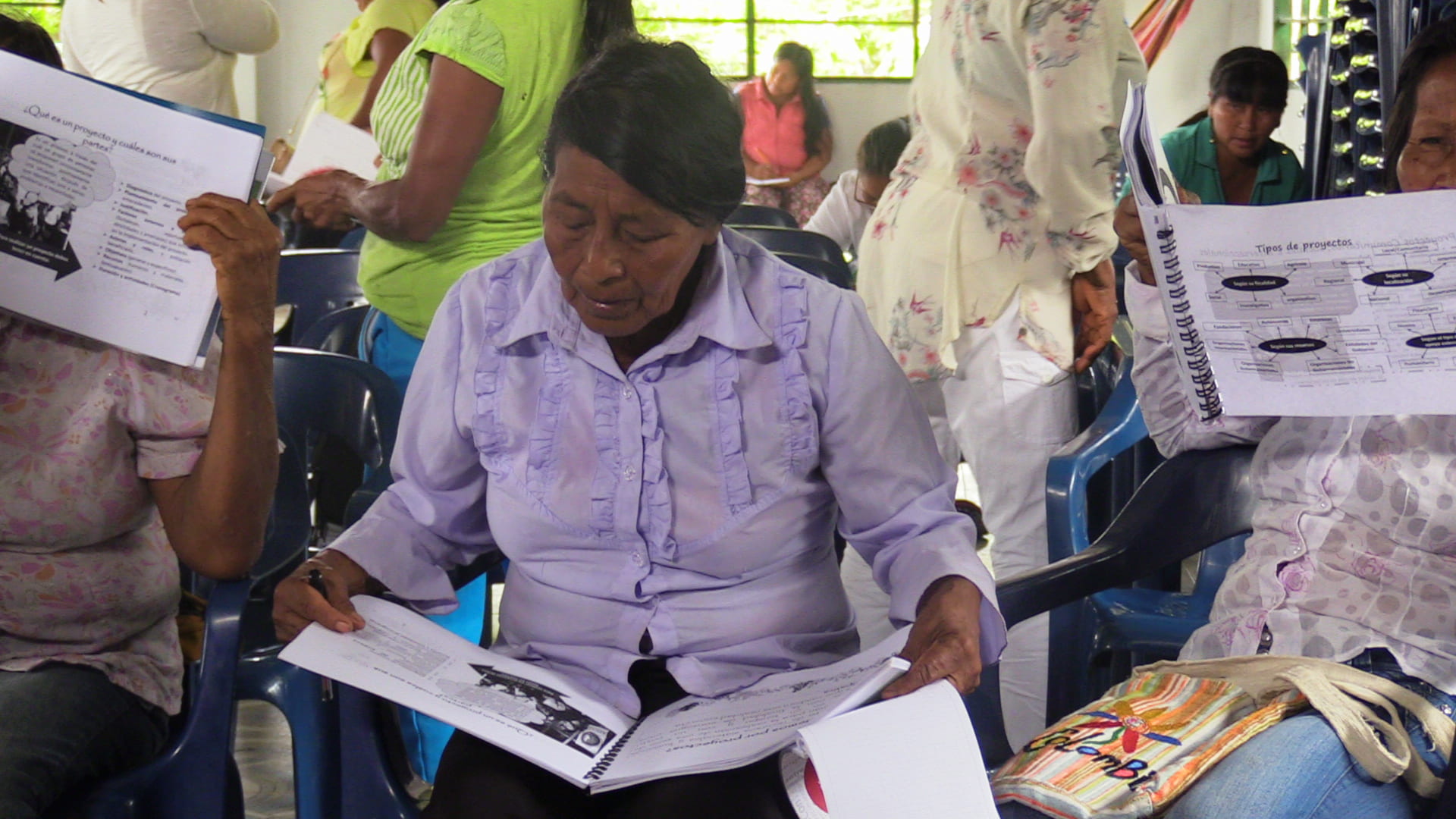 The Global Action Research Institute for Indigenous Women Leaders (IGIALI) is an international platform for action research, training and intercultural dialogue that seeks to become a seedbed for the leadership of indigenous women in the Americas. Currently, 193 Colombian indigenous women from Colombia are participating in this process, distributed as follows:
The Global Action Research Institute for Indigenous Women Leaders (IGIALI) is an international platform for action research, training and intercultural dialogue that seeks to become a seedbed for the leadership of indigenous women in the Americas. Currently, 193 Colombian indigenous women from Colombia are participating in this process, distributed as follows:
- 92 indigenous women from the Wiwa community in the departments of Riohacha and Cesar.
- 50 Arhuaca indigenous women from the department of Cesar.
- 32 Amazonian indigenous women from the department of Guainía.
- 10 indigenous university women in the context of the city, members of the scholarship program weaving interculturalities of the Universidad del Rosario.
- 9 Inga women from the Inga community in the city context.
The project was consolidated thanks to the articulation of the Wagner Graduate School of Public Service of the University of New York (under the leadership of professors Sonia Ospina and PhD student Mariana de Santibañes), the Intercultural School of Indigenous Diplomacy of the Universidad del Rosario. EIDI (led by professor Ángela Santamaria) and the Small Grants Program of the U.S. Embassy in Colombia. IGIALI seeks to support and nurture the active searches of indigenous women to transform their local and national realities, and those of their families, communities and peoples, through the co-production of knowledge and the exchange of experiences.

IGIALI recently concluded its first cycle, which began on March and was completed in June 2021. On this occasion, the priority theme was gender violence and sexual violence from an intersectional and ethnic approach. For this reason, a panel of indigenous and non-indigenous experts who have addressed these dynamics from different fronts such as intercultural communication, public policy and academia participated in 12 consecutive sessions. In its formative phase, the project was accompanied by women leaders, such as: Otilia Lux, Irma Alicia Velásquez, Eulalia Petit and Guadalupe Martínez. However, indigenous women and men with local and regional leadership also participated in the process and articulated the process in a community setting.
The IGIALI proposal is a dream that began more than five years ago through the participation of the Wagner Graduate School of Public Service and the Intercultural School of Indigenous Diplomacy in the United Nations Permanent Forum on Indigenous Issues. This international platform made possible the consolidation of an articulated work between New York University and Universidad del Rosario that has been reflected in projects such as:
- The organization of international missions between the United States and Colombia: enabling the mobility of more than 10 Colombian indigenous and non-indigenous women, including Dunen Muelas (the first indigenous professor at the University of Rosario), Fany Kuiru (Uitoto indigenous woman coordinator of the area of women, family and generation of the National Organization of Indigenous Peoples of the Colombian Amazon – OPIAC) and Yeshica Serrano, Paula Cáceres and Monica Acosta (Researchers of the Intercultural School of Indigenous Diplomacy EIDI).
- Development of two Intercultural Diplomates during 2019 in Colombia: An Intercultural Diplomate developed with more than 100 indigenous women and men in GunArum, Arhuaca community of Colombia. Professor Sonia Ospina participated in this process on behalf of the University of New York. The second diploma course was developed with 30 women from the Wiwa community and included the participation of Mariana de Santibañes on behalf of the American University.
- Professor Ángela Santamaria’s teaching internship in New York during 2020 and the creation of different intervention and training projects, including the IGIALI Institute.
The IGIALI project currently has a regional coordination led by Paula Cáceres, project professional, assistant professor and researcher at the Universidad del Rosario, and six local coordinations headed by indigenous women, including Edilma Loperena, Anairis Loperena, Ena Perez (representatives of the Wiwa community), Sandra Rodriguez (representative of the Piapoco people in the department of Guainia) and Digneri Izquierdo (representative of the Arhuaco people).






